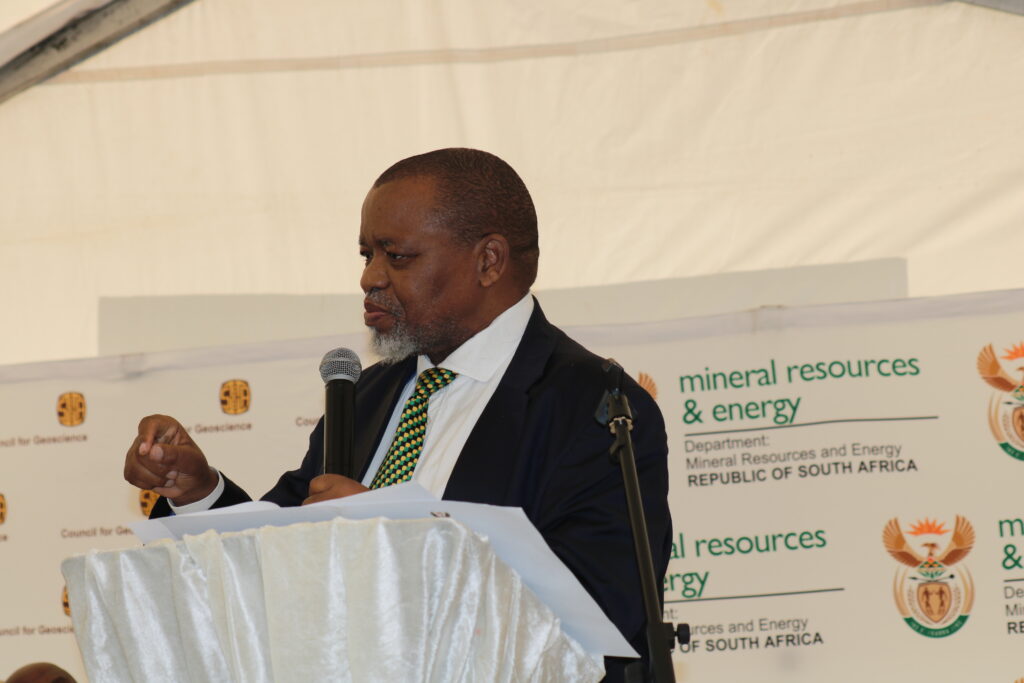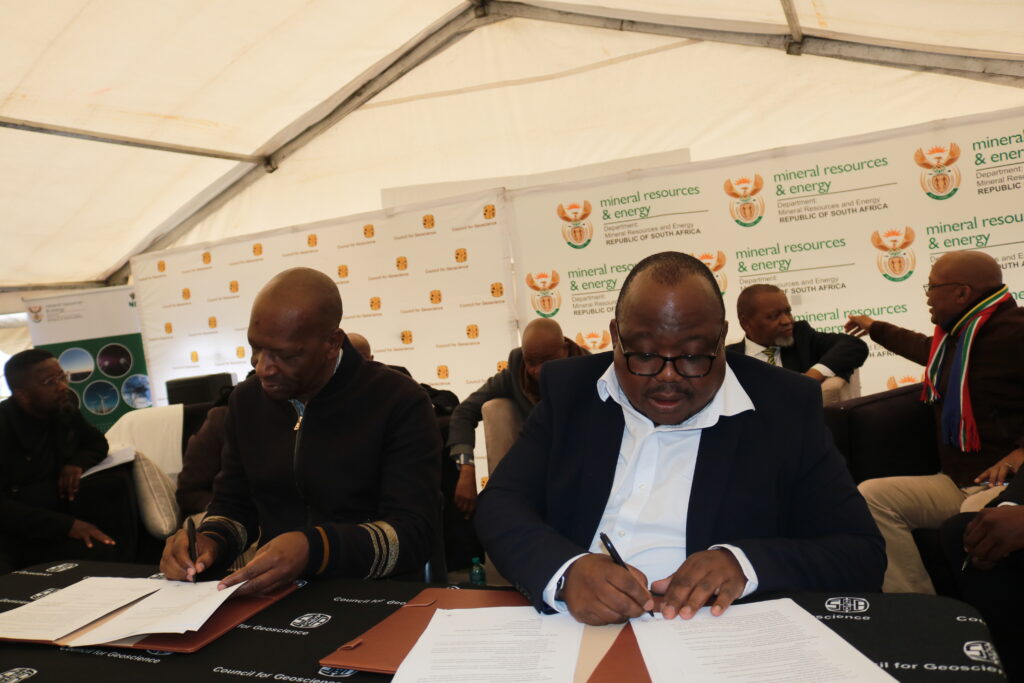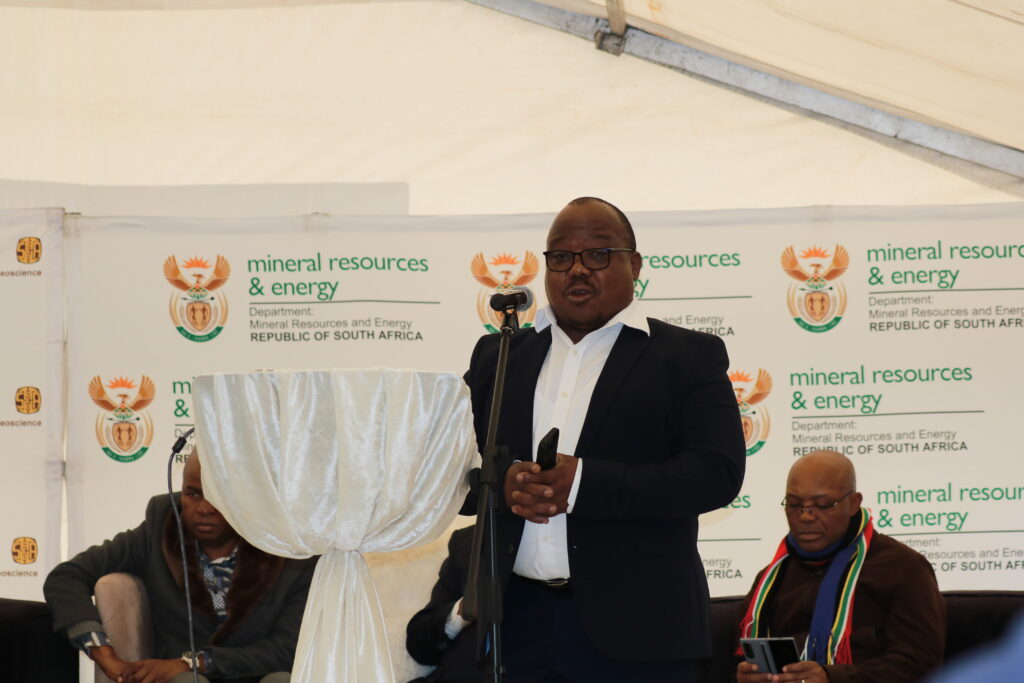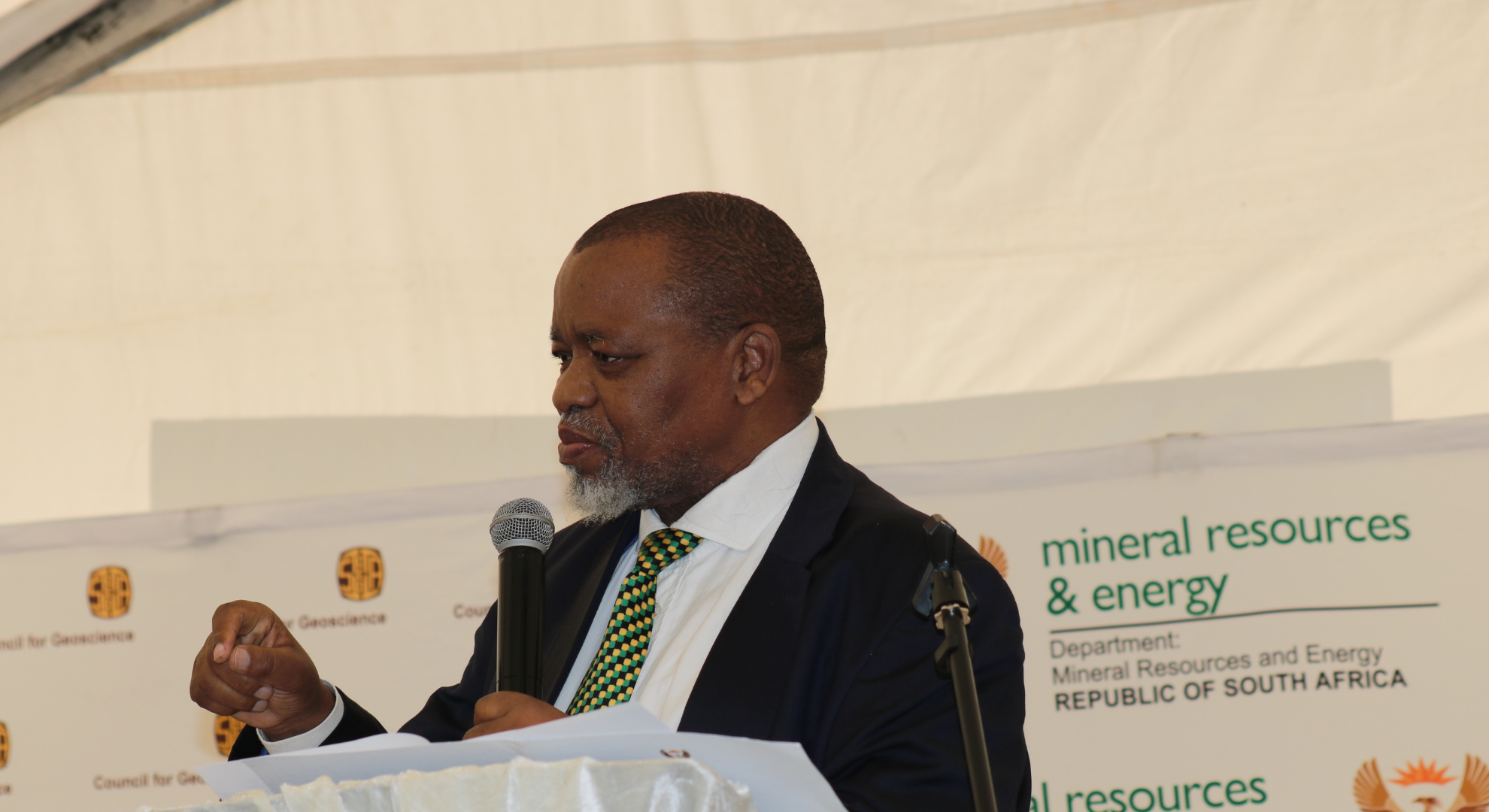Last week, in a ground-breaking move for South Africa’s climate strategy, the Honourable Minister of Mineral and Petroleum Resources, Mr. Gwede Mantashe (MP), officially unveiled the country’s first pilot Carbon Capture, Utilisation, and Storage (CCUS) research site in Leandra, Mpumalanga. This landmark development follows the successful completion of a geological characterisation study, including the drilling of a 1,800-meter stratigraphic borehole at the Goedehoop site, confirming its suitability for safe and permanent CO₂ storage. This site represents a crucial step towards deploying CCUS technology as a viable solution to mitigate CO₂ emissions.
The opening of the Leandra research site marks a significant milestone in South Africa’s CCUS journey, which began in the mid-2000s when the potential for geological CO₂ storage was first identified. In 2004, the then Department of Minerals and Energy, in collaboration with the Council for Scientific and Industrial Research (CSIR), initiated a study to explore the feasibility of CCUS technology in South Africa. This study, followed by the publication of the “Atlas on Geological Storage of Carbon Dioxide in South Africa,” highlighted both onshore and offshore storage possibilities in regions such as the Zululand and Algoa Basins. Since 2021, the Council for Geoscience (CGS) has spearheaded the pilot project, conducting extensive research to identify suitable geological formations for CO₂ storage, under the mandate of the Department of Mineral Resources and Energy.
The completion of Phase 1 of the Pilot CCUS Research Project is a pivotal moment in South Africa’s efforts to combat climate change. Mr. Mosa Mabuza, CEO of the Council for Geoscience, highlighted this achievement, stating, “With support from the South African government and the World Bank, CGS has made significant progress, including the completion of a comprehensive geological characterisation and feasibility study for the pilot injection plant. These findings reveal the site’s capacity to store up to 34 gigatonnes of CO₂, paving the way for Phase 2, which will focus on design, construction, and the injection phase.”
Minister Mantashe underscored the importance of the new CCUS research site in addressing South Africa’s status as one of the world’s highest CO₂ emitters, particularly due to its heavy reliance on fossil fuels for energy production. “South Africa is responsible for approximately 500 million tonnes of CO₂ emissions annually, largely from coal combustion. This initiative is a critical step towards reducing our carbon footprint,” he stated. “We urge all industry stakeholders to collaborate with us, providing the necessary financial and technical support to ensure the success of CCUS technology in South Africa.”
The event also featured the signing of a Memorandum of Understanding (MOU) between the Council for Geoscience and the Mpumalanga Department of Economic Development, Environment, and Tourism (DEDT), represented by Mr. Mosa Mabuza and Ms. Makhosazane Masilela, MEC for DEDT, respectively. This agreement signifies a commitment to joint efforts in advancing CCUS and related programs as part of a broader intergovernmental strategy. The MOU signing was attended by key stakeholders, including representatives from national and provincial government departments, local and district municipalities, industry leaders, non-governmental organizations, academia, and the general public.
Minister Mantashe emphasized the need for strong public-private partnerships to achieve South Africa’s climate goals, highlighting that significant investments in technology and expertise are vital. “The Department of Mineral and Petroleum Resources calls on all industry players to join this crucial effort,” he said.
Mr. Mabuza also expressed gratitude for the widespread support the project has received. “We have seen exceptional backing from local authorities, the Mpumalanga Provincial Government, and the Govan Mbeki Local Municipality, our host for this project. Through our Public Advocacy Programme, we have fostered a deeper understanding among South Africans of the role CCUS technology can play in reducing emissions. The Council for Geoscience is committed to driving this initiative forward and calls for the continued support of all stakeholders to achieve our shared climate mitigation objectives.”





